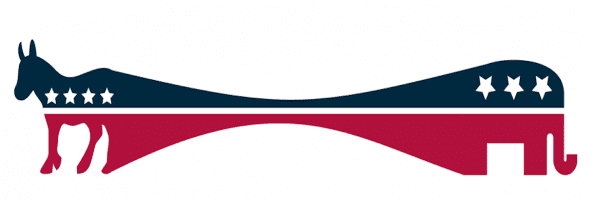To Fume Or Not to Fume: Wharton Studies Cite Benefits of Anger in Negotiation

A recent article on effective negotiation and competition tactics in the Wall Street Journal utilized the results of four studies from The Wharton School. Specifically, the article discussed the benefits of getting angry in these situations.
The article cites four Wharton studies that explored the effects of anger on motivation and outcome in negotiation and competition settings. In the negotiation studies, subjects were informed that they would participate in a meeting with another person. Half of the subjects were told the meeting would be a negotiation, and the other half were told they would just be having a conversation. In the competition study, researchers told half of the participants they would be playing a computer game with a teammate, and told the other half that they would be playing a video game against a rival player. Participants in both studies were given the option to watch either a clip of standup comedy or an upsetting harassment scene from the 1985 film Witness.
Subjects who believed they were entering into a competition or negotiation were far more likely to watch the harassment scene, whereas those who were told they were having a conversation or playing a game as a team gravitated toward watching standup. Participants who watched the upsetting video before going into a negotiation or competition (and expected their anger to be a useful tool) performed more effectively.
Multiple studies have shown that negative feelings can be an asset in negotiations—or at least that positive feelings an be an impediment. In her book Sensation: The New Science of Physical Intelligence, psychologist Thalma Lobel suggested making people as physically comfortable as possible before proposing a business deal. An act as simple as serving someone a warm cup of coffee proved to increase their positive feelings toward the other person, and consequently made them a more lax negotiator.
Though it seems anger can be an effective tool, the article cautioned readers that it can also impede the creative process by narrowing thinking. Additionally, getting mad can negatively impact coordination. But ultimately, anger, when harnessed carefully and expertly, can improve chances of victory in competitive settings.
Mays and Humana Partner for Healthcare Analytics Competition

The Texas A&M University – Mays Business School will serve as host for the university’s first-ever healthcare analytics case competition, partnering with Humana Inc. to showcase student’s analytic ability.
Boston University Consumer Study Finds Positives in Geo-Targeting

It’s been written that traditional direct mail coupons are a “lose-lose scenario” for two competing brands as they effectively negate the possibility that one company can profit over the other. Beyond the profit margin, coupons are out-of-time, out-of-place propositions that don’t take into account our busy, mutable schedules.
HBS Paper Looks At US Political Problems Through Lens of Competition

In the free market sense, competition is one of the world’s greatest drivers of innovation. But more often than not, the effect of political competition may not be readily positive, according to new research from Harvard Business School.
Co-authored by former CEO Katherine Gehl along with HBS professor and U.S. Competitiveness Project Co-Chair Michael E. Porter, the duo identified how the “fundamental structural issues ailing the U.S. political system” have evolved using Porter’s Five Forces analysis.
The report breaks down how the American political “duopoly is protected by huge barriers to entry that have not only blocked major new parties but also independents and moderates” and “will not be self-correcting.” What has transpired from time immemorial, according to Gehl, is that the two dominant competitors in the American politics industry “focus on serving their partisan supporters and special interests, not the average voter.”
One revealing portion of the study digs deeper into the profound effects ideology has on the issue.
“Parties compete to create and reinforce partisan divisions, not deliver the practical solutions that are the most important outcome we need our political system to achieve” … “The duopoly appeals to its partisan supporters based on ideology, not policies that work. Ideology offers simplistic and polarized approaches to addressing issues. The definition of ideology includes words such as ‘beliefs,’ ‘perspectives,’ and ‘doctrine,’ not words like ‘reality,’ ‘objective analysis,’ and ‘facts.’ Ideological stances appeal to partisan believers but rarely, if ever, provide an actual solution.”
Porter, whose organization “identifies the necessary steps policymakers and the business community must take to improve U.S. competitiveness,” explained the roots of his desire to extend his research into the political domain.
“I was drawn to analyze the U.S. political system as an industry when our research found that our political system is the biggest impediment to U.S. competitiveness,” Porter said. “Our dysfunctional political outcomes are a competition problem.”
Gehl and Porter used their research as an opportunity to evaluate “which powerful and achievable political reforms should be pursued” and then lay out an actionable plan for how to reinvigorate “our democracy by shifting the very nature of competition.”
Click here to read full report.
Sloan Study Finds Public Displays of Exercise Are Contagious

After compiling several year’s worth of data, a study from MIT Sloan professor Sinan Aral and postdoc Christos Nicolaides found that exercise is indeed socially contagious. Aral says, “Knowing the running behaviors of your friends as shared on social networks can cause you to run farther, faster, and longer.”
Stetson Announces Winner of Next Big Idea Competition

The Mercer University – Eugene W. Stetson School of Business & Economics has recently announced the winners of their annual Next Big Idea Competition, sponsored by the Mercer Innovation Center.
